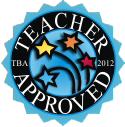Already a Member? Login Now
Just as a pre-packaged product is not the ONLY way to cook a dish, nor the ONLY dish we should consume, we cannot continue to think about a pre-packaged standard of intelligence to which we all aspire.
If we all ate the same foods—particularly if they were not our favorites—day in and day out for years, we would most certainly lose our desire to eat.
Tweet
Our Vision for Kidzmet® :: Consider the analogy of a cookbook. Kidzmet is a "Learning Cookbook" containing MANY recipes for learning success.
 We've all heard the old adage "even if you love steak and ice cream, eating it for every meal every day would not be appealing."
We've all heard the old adage "even if you love steak and ice cream, eating it for every meal every day would not be appealing."
And, as parents, we've all heard our kids say, "EWWW!!! I hate <insert meat or vegetable name here>!!"
Similarly, if you cook a food your child hates in a new way, they'll often remark, "Wow! I really like <insert meat or vegetable name here> when you cook it this way!"
Similarly, our vision for Kidzmet® is to get the next generation of kids thinking about learning like we, as adults, think about food. We all enjoy a variety of food and there are an infinite number of ways to cook each ingredient (intelligence) as well as an infinite number of perspectives on how that particular ingredient tastes when cooked a certain way. Furthermore, as our palates develop, we crave more and more complexity in our meals, adding salads, sides, desserts and wine that complement the flavors of the main course. While we may often return to the purist version of our favorite meal (e.g. a grilled steak), the majority of our meals are composed of a variety of dishes served in a variety of ways that appeal to our individual palates.
We developed Kidzmet's preference profile to help us to understand your child's "ingredients"—their personality, innate talents and predominant learning style. Our Student Snapshots, Pairing Portrait and monthly newsletters feature "recipes" that incorporate your child's favorite "foods". (E.g. how to approach a long-term project with a child with a perceiving personality type or mixing language arts into a board game for a "people smart" kid.) If you like a particular recipe suggestion, you can add it to your regular rotation or try to find more recipes in the same vein.
As they dabble in a wider variety of activities, your kids will be able to "riff" on the basics as they develop both a cooking style and recipes of their own...or be compelled to want to try recipes from local "chefs" (teachers, tutors or coaches) that share a similar palate. This does not mean that we recommend pairing your kids with identical mentors--just compatible ones so that they can stretch their personalities, interpersonal skills and knowledge in new and broader directions.
This is also NOT to say that your kids don't require the basics. Just as in a recipe book, they need the fundamentals of reading and math to understand and calibrate the dishes via ingredients, step-by-step instructions and measurements. Without these fundamentals, trying their hand at more complex dishes is incredibly difficult.
But just as a pre-packaged product is not the ONLY way to cook a dish, nor the ONLY dish we should consume, we cannot continue to think about a pre-packaged standard of intelligence to which we all aspire. If we all ate the same foods—particularly if they were not our favorites—day in and day out for years, we would most certainly lose our desire to eat.
And just like pre-packaged meals that are mass produced, these meals are significantly less sought after, valued and desired than the inspired creations of local or celebrity chefs.

We all need to work together to cultivate an appetite for learning in our youth by feeding them subject matter in a way that celebrates and embraces their unique spirits.
I sincerely hope that we develop Kidzmet® in a way that you come to think of us as the "Joy of Cooking" on your family's learning bookshelf.
To our kids' collective success,
Jen Lilienstein
Founder
* * * * *
How Were Your Kids Meant to Learn?







